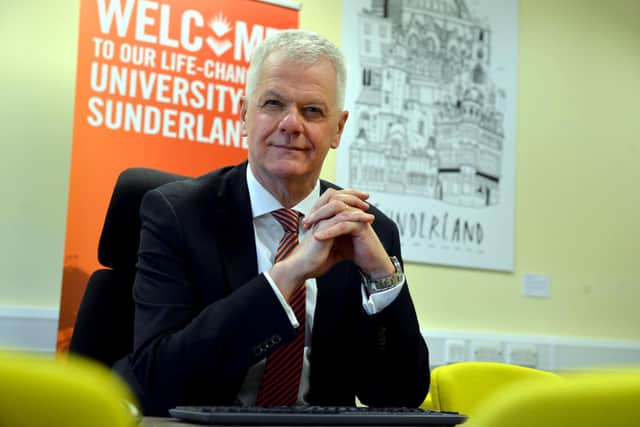University of Sunderland Vice-Chancellor Sir David Bell believes Medical School has a vital role in Government’s levelling up agenda
and live on Freeview channel 276
Medical schools were once seen as the preserve of the self-proclaimed elite of the Russell Group - the 24 universities perceived as the most prestigious in the UK.
However, since opening its Medical School in 2019, the University of Sunderland is leading the way in changing both access and perception in the pathway to becoming a doctor.
Advertisement
Hide AdAdvertisement
Hide AdIn 2018, a UK government plan was introduced to expand the number of medical school places by 25 per cent, aimed at reaching regions where it was hard to recruit doctors.
It led to the creation of a publicly funded medical school in Sunderland as well as other institutions in areas with higher levels of social deprivation.
In an article for the Times Higher Education Sir David said: “It’s important to note there’s been no compromise on admissions standards in relation to existing medical schools. We’ve a powerful testimony from our students saying they would not have studied medicine without the ability to do that more locally or at a different kind of institution.”
Of Sunderland’s medical students, 48 per cent are from the North-East and North Cumbria. Perhaps of greatest significance is only 33 per cent are from private schools.
Advertisement
Hide AdAdvertisement
Hide Ad

Sir David added: “This is the lowest of any medical school in the country.”
The Vice-Chancellor has previously spoken of the importance of the Medical School in increasing healthcare provision for local communities and the university’s role in establishing the city as a national “healthcare zone” – a key component of the levelling agenda.
He said: “We’ve 250 medical students training to be doctors. I know many of these students wish to stay local and contribute to the future success of the area’s Health Service.”
Sir David also spoke of the “halo effect” with the Medical School playing a key role in changing the perception of the city.
Advertisement
Hide AdAdvertisement
Hide AdHe said: “It’s great for the university, but perhaps even more importantly, I think it’s really powerful for the city.”
Responding the inevitable question of ‘do more medical schools mean a reduction in quality’? the Vice-Chancellor highlighted the rigorous standards set for any institution by the General Medical Council.
Comment Guidelines
National World encourages reader discussion on our stories. User feedback, insights and back-and-forth exchanges add a rich layer of context to reporting. Please review our Community Guidelines before commenting.
